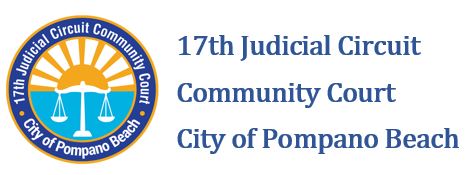 |
 |
In November 2018, the average daily jail population in Broward County was roughly 3,500. We hope to reduce that number by initiating Florida’s first Community Court, a program that addresses the needs of at-large, homeless, petty crime and municipal ordinance offenders. Held every Wednesday morning at City Hall in Fort Lauderdale, Community Court focuses on the root causes of each defendant’s issues, applying appropriate therapeutic and community service based punishments. Participants must choose to take an active role in their rehabilitation, and agree to give back to the community in the form of community service, once their situation is stable.
The Seventeenth Circuit worked closely with the City of Fort Lauderdale, Broward County, the State Attorney’s Office, the Office of the Public Defender and the Broward Sheriff’s Office to develop the program, and a number of public and private service providers signed on to provide services to participants in the Community Court.
The City of Fort Lauderdale was one of five jurisdictions in the nation to receive a federal grant to implement the specialized court. There are nearly 70 Community Courts throughout the country.
Community Court has now expanded to the City of Pompano Beach. For location and hours of operation, please see below.
Read the Administrative Order establishing Community Court here: 2021-46-CRIM
Location and Hours of Operation
Court for the City of Fort Lauderdale is held Wednesdays, starting at 11:00 a.m. at 18 NW 1st Avenue Fort Lauderdale, FL 33301. Intake begins at 9:00 AM.
Court for the City of Pompano Beach is held every other Thursday starting at 1:30 PM-3:30 PM at the Annie L. Weaver Health Center, 2011 NW 3rd Ave , Pompano Beach, FL 33060. Intake begins at 12:30 PM.
Court for the City of Hollywood is held weekly on Tuesdays from 2:00 PM-4:00 PM at the Broward Outreach Center, 2056 Scott St, Hollywood, FL 33020. Intake begins at 12:30 PM.
Social Service and Community Service Provisions
Administrative Order No. 2021-46-CRIM requires all participants in community court to complete 10 hours of community service prior to graduation from the program. Participants will be assigned to community service based on education level, work experience, interests, and/or availability. Community court takes pride in providing creative opportunities for community service that allow participants to learn or enhance skills that lead to employment. Participants will sign up for community service through their case manager. The case manager will coordinate with the community service provider to track participant attendance and verify completion and report progress to the court at the participant’s scheduled appearances.
Social services are mandated to participants classified as medium or high needs. The community court has partnered with city agencies and non-profit organizations across the county to provide a range of services that include but are not limited to: mental health, substance abuse, housing, food, employment, education, and medical. The services are prescribed from highest to lowest need in order to address the participant’s most pressing need first. Participants will receive referrals for services which cannot be completed through the mandate, for completion on a voluntary basis. As with community service mandates, the participant’s case manager will track the participant’s progress through their social service program and provide regular updates to the court.
Disposition Outcomes
Graduation ceremonies are a significant step in the community court process. Participants often overcome numerous barriers throughout their time in the program and it is important that the court honor their commitment and achievements. Participants are deemed eligible for graduation on the court date immediately following completion of the community service and/or social service mandate. The graduation ceremony includes final disposition of the case[1], verbal recognition of the participant’s effort and achievement(s), applause from court staff and audience, a program pin and a certificate of completion signed by the judge. Having other community court participants present during graduation ceremonies provides a boost of confidence that they too can complete the programming and graduate. Graduates are welcome to return to the court to seek additional services on a voluntary basis and are considered for additional assistance with housing and benefits.
Photos, Video and Media
Community Court Profile- City of Fort Lauderdale
WSVN News: Fort Lauderdale begins pilot community court program
Community Court Expands: City of Pompano Beach
NBC6 News: Vet Pays It Forward After Vehicle Was Stolen
